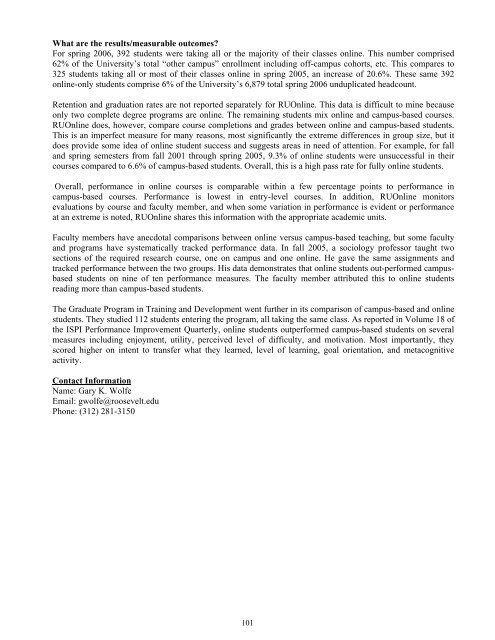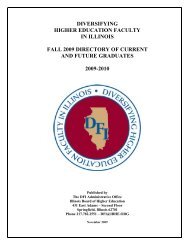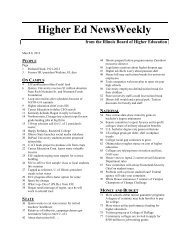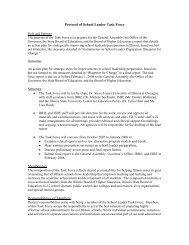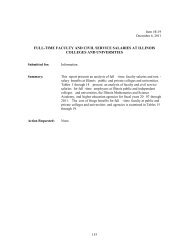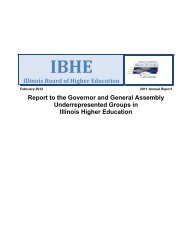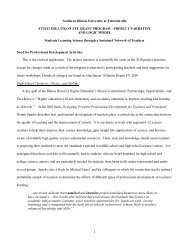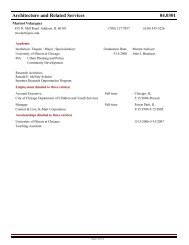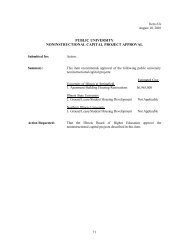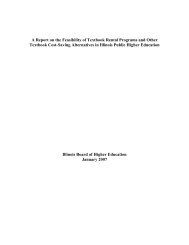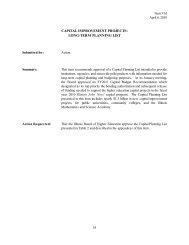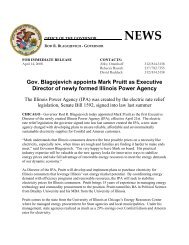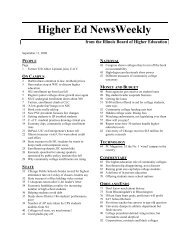Title of Effective Practice: - California Postsecondary Education ...
Title of Effective Practice: - California Postsecondary Education ...
Title of Effective Practice: - California Postsecondary Education ...
You also want an ePaper? Increase the reach of your titles
YUMPU automatically turns print PDFs into web optimized ePapers that Google loves.
What are the results/measurable outcomes?<br />
For spring 2006, 392 students were taking all or the majority <strong>of</strong> their classes online. This number comprised<br />
62% <strong>of</strong> the University’s total “other campus” enrollment including <strong>of</strong>f-campus cohorts, etc. This compares to<br />
325 students taking all or most <strong>of</strong> their classes online in spring 2005, an increase <strong>of</strong> 20.6%. These same 392<br />
online-only students comprise 6% <strong>of</strong> the University’s 6,879 total spring 2006 unduplicated headcount.<br />
Retention and graduation rates are not reported separately for RUOnline. This data is difficult to mine because<br />
only two complete degree programs are online. The remaining students mix online and campus-based courses.<br />
RUOnline does, however, compare course completions and grades between online and campus-based students.<br />
This is an imperfect measure for many reasons, most significantly the extreme differences in group size, but it<br />
does provide some idea <strong>of</strong> online student success and suggests areas in need <strong>of</strong> attention. For example, for fall<br />
and spring semesters from fall 2001 through spring 2005, 9.3% <strong>of</strong> online students were unsuccessful in their<br />
courses compared to 6.6% <strong>of</strong> campus-based students. Overall, this is a high pass rate for fully online students.<br />
Overall, performance in online courses is comparable within a few percentage points to performance in<br />
campus-based courses. Performance is lowest in entry-level courses. In addition, RUOnline monitors<br />
evaluations by course and faculty member, and when some variation in performance is evident or performance<br />
at an extreme is noted, RUOnline shares this information with the appropriate academic units.<br />
Faculty members have anecdotal comparisons between online versus campus-based teaching, but some faculty<br />
and programs have systematically tracked performance data. In fall 2005, a sociology pr<strong>of</strong>essor taught two<br />
sections <strong>of</strong> the required research course, one on campus and one online. He gave the same assignments and<br />
tracked performance between the two groups. His data demonstrates that online students out-performed campusbased<br />
students on nine <strong>of</strong> ten performance measures. The faculty member attributed this to online students<br />
reading more than campus-based students.<br />
The Graduate Program in Training and Development went further in its comparison <strong>of</strong> campus-based and online<br />
students. They studied 112 students entering the program, all taking the same class. As reported in Volume 18 <strong>of</strong><br />
the ISPI Performance Improvement Quarterly, online students outperformed campus-based students on several<br />
measures including enjoyment, utility, perceived level <strong>of</strong> difficulty, and motivation. Most importantly, they<br />
scored higher on intent to transfer what they learned, level <strong>of</strong> learning, goal orientation, and metacognitive<br />
activity.<br />
Contact Information<br />
Name: Gary K. Wolfe<br />
Email: gwolfe@roosevelt.edu<br />
Phone: (312) 281-3150<br />
101


